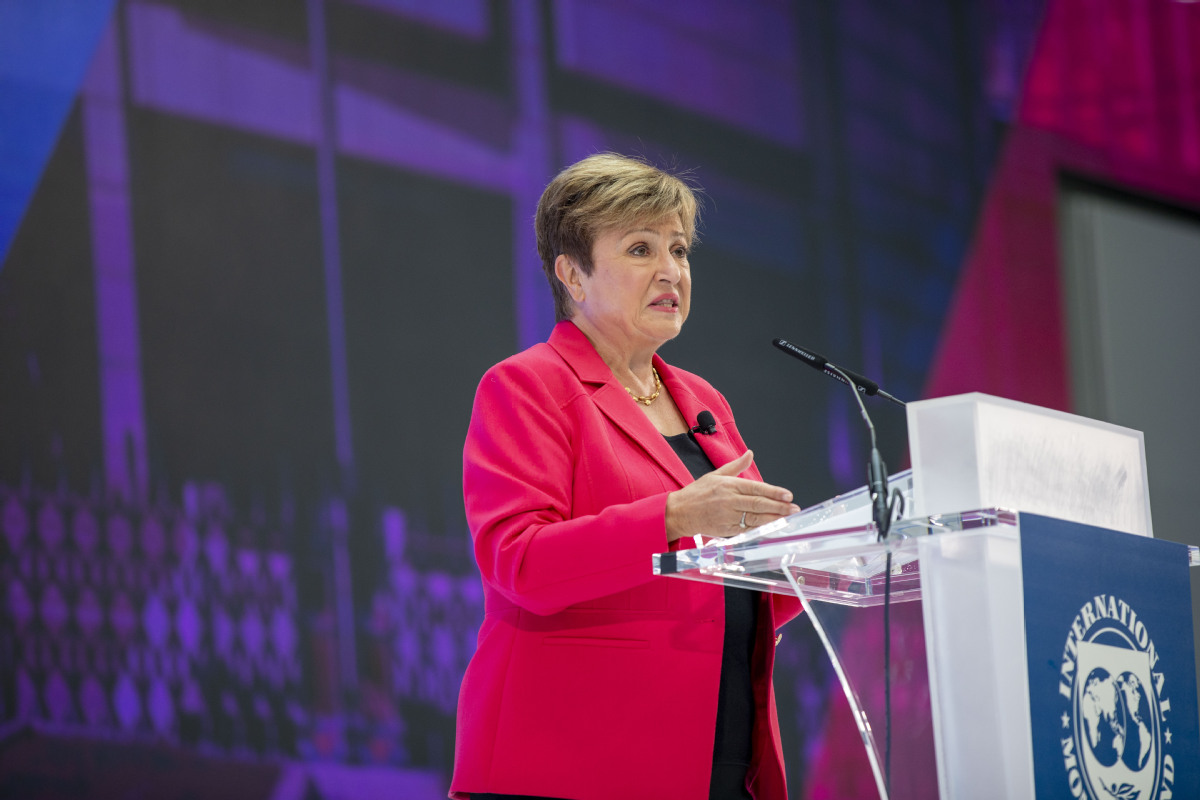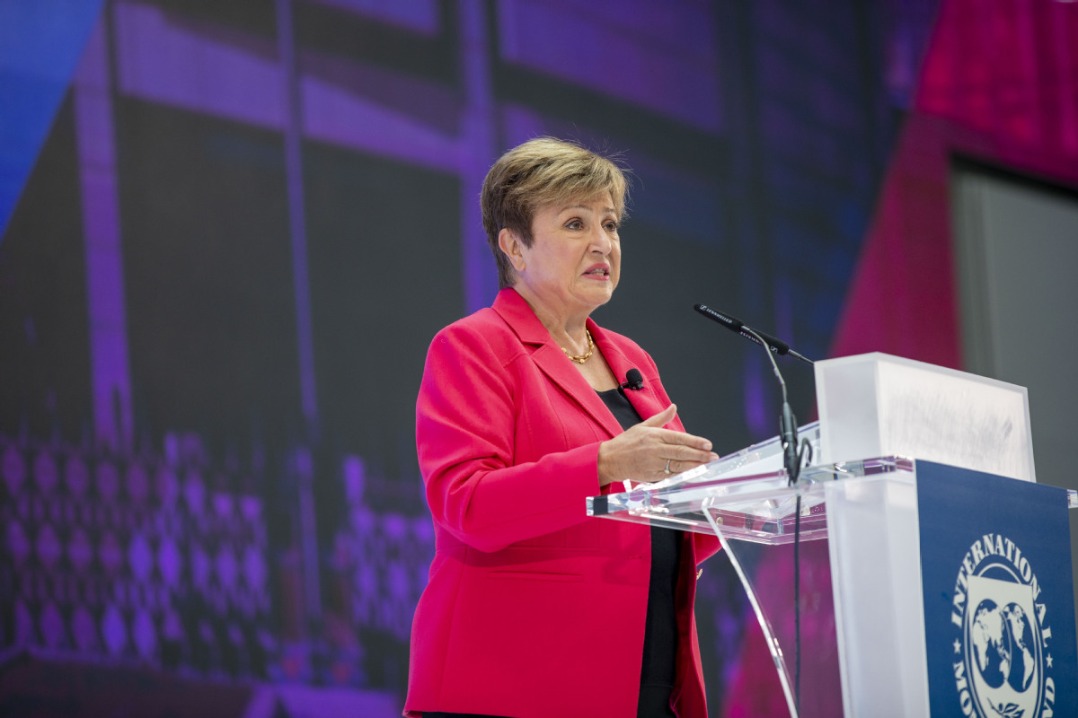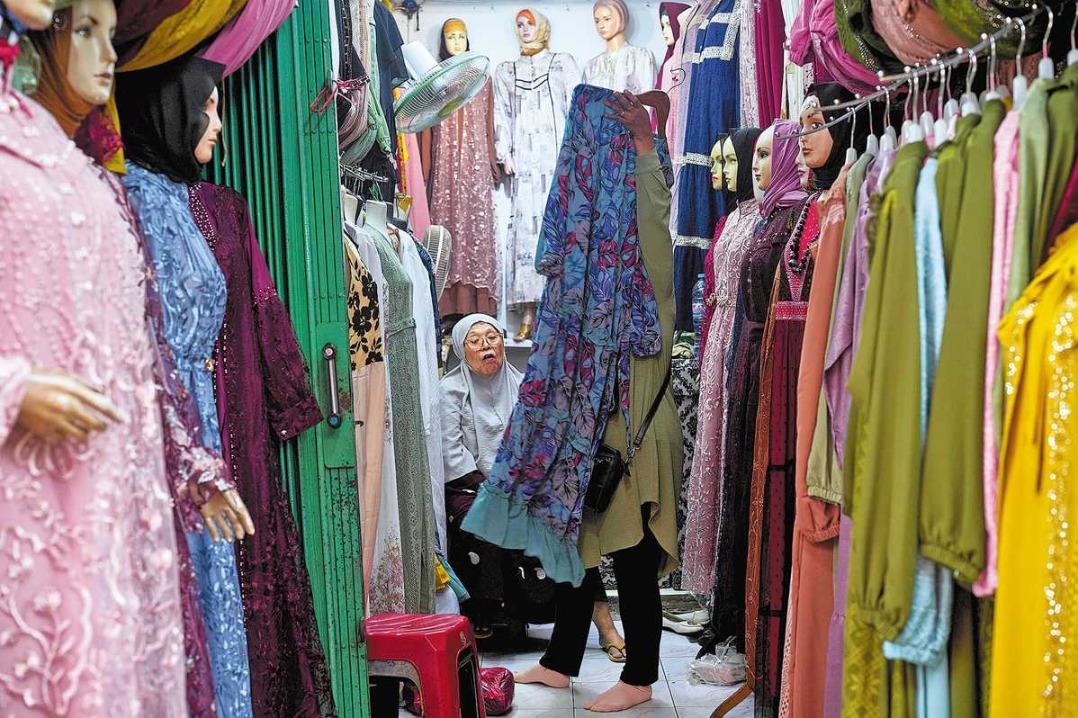IMF director: Tariff uncertainty taking toll on markets


The heightened uncertainty stemming from escalating trade tensions is costly, and the more it is removed, the better, International Monetary Fund Managing Director Kristalina Georgieva said on Thursday.
Georgieva, speaking at a "curtain-raiser" event in Washington ahead of next week's IMF and World Bank Spring Meetings, noted that the world economy's resilience is being tested "by the reboot of the global trading system" that threatens to cause turbulence in financial markets.
Georgieva said that putting together all the recent tariff increases, pauses, escalations and exemptions, it seems clear that the United States' effective tariff rate has jumped to levels last seen generations ago. Other countries have responded.
"In a world of bilateral tariff rates, each of which may be moving up or down, planning becomes difficult. The result? Ships at sea not knowing which port to sail to; investment decisions postponed; financial markets volatile; precautionary savings up. The longer uncertainty persists, the larger the cost," she said.
Protracted high uncertainty raises the risk of financial market stress, Georgieva said, warning that recent US Treasurys' yield curve movements should be taken seriously.
"Everyone suffers if financial conditions worsen," she said.
The IMF chief didn't directly call for a reduction in the tariff war intensified by the US with its trading partners, especially China, in her speech and subsequent interview. However, she emphasized how Washington and Beijing's interactions affect the global economic landscape.
"We would like to see a reduction in uncertainty, and it is hard to get there if the two largest economies are still finding their footing, and when, obviously, from the perspective of the world economy, it is important that the result of all this is a more fairer, rule-based system," Georgieva said.
She stressed that rising trade barriers hit growth upfront, as tariffs, like all taxes, raise revenue at the expense of reducing and shifting activity — and evidence from past episodes suggests higher tariff rates are not paid by trading partners alone but by importers through lower profits and consumers through higher costs.
She also said that protectionism erodes productivity over the long run and reduces competition while leading to less efficient resource allocation and stifling innovation, particularly in smaller economies.
"I want to repeat (that) my main message is get uncertainty down, so businesses and consumers can plan, and when we do that, we would see very positive impact for the economy," Georgieva said.
Despite massive uncertainty over tariffs, the IMF sees global growth hurt by trade tensions but does not expect a global recession, because "the economic fundamentals are still quite strong", according to Georgieva.
"We, of course, know from experience that the longer uncertainty goes, the more likely it is to have negative impact on growth. So the more we can advance in clarity, remove this uncertainty, the better. But what we see is the real economy is functioning," she said.
She also cited a strong labor market and a solid financial system as parts of reasons why the World Economic Outlook, to be released early next week, will include "notable markdowns, but not recession".
"One thing I learned through crisis periods is perceptions matter as much as reality," she said. "If perceptions change negatively, that can be quite detrimental to the performance of the economy."
In closing her speech, Georgieva called for unity and courage to navigate an uncertain future, saying that in challenge, there is opportunity, and that the most pressing priority by far is "ensuring that there can be cooperation in a multi-polar world".
"We need a more resilient world economy, not a drift to division," she said. "All countries, large and small alike, can — and should — play their part to strengthen the global economy in an era of more frequent and severe shocks."


































